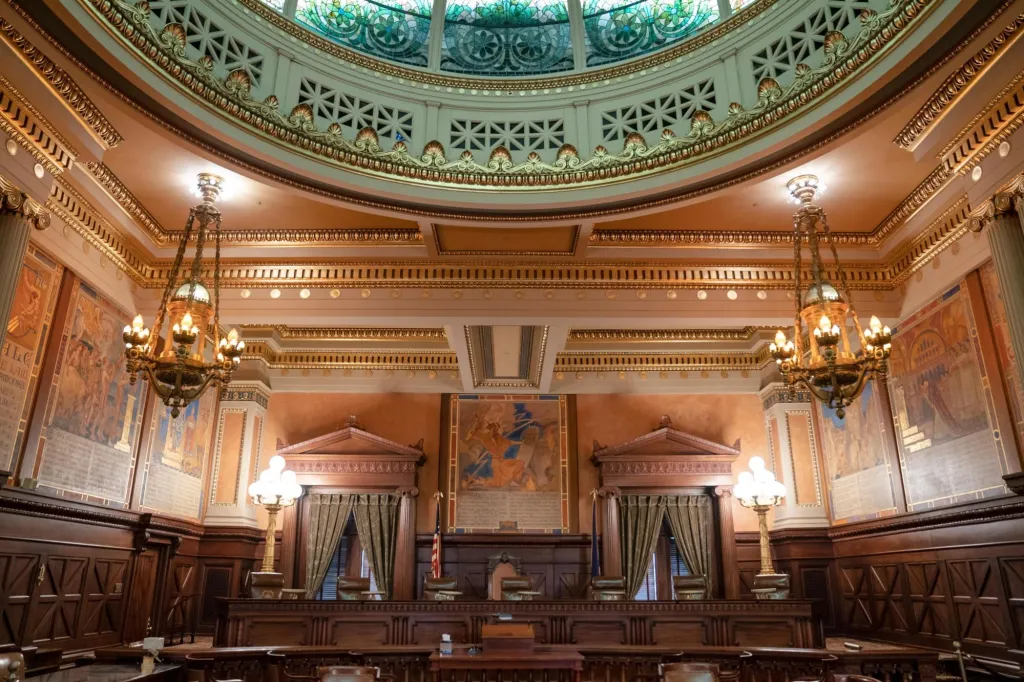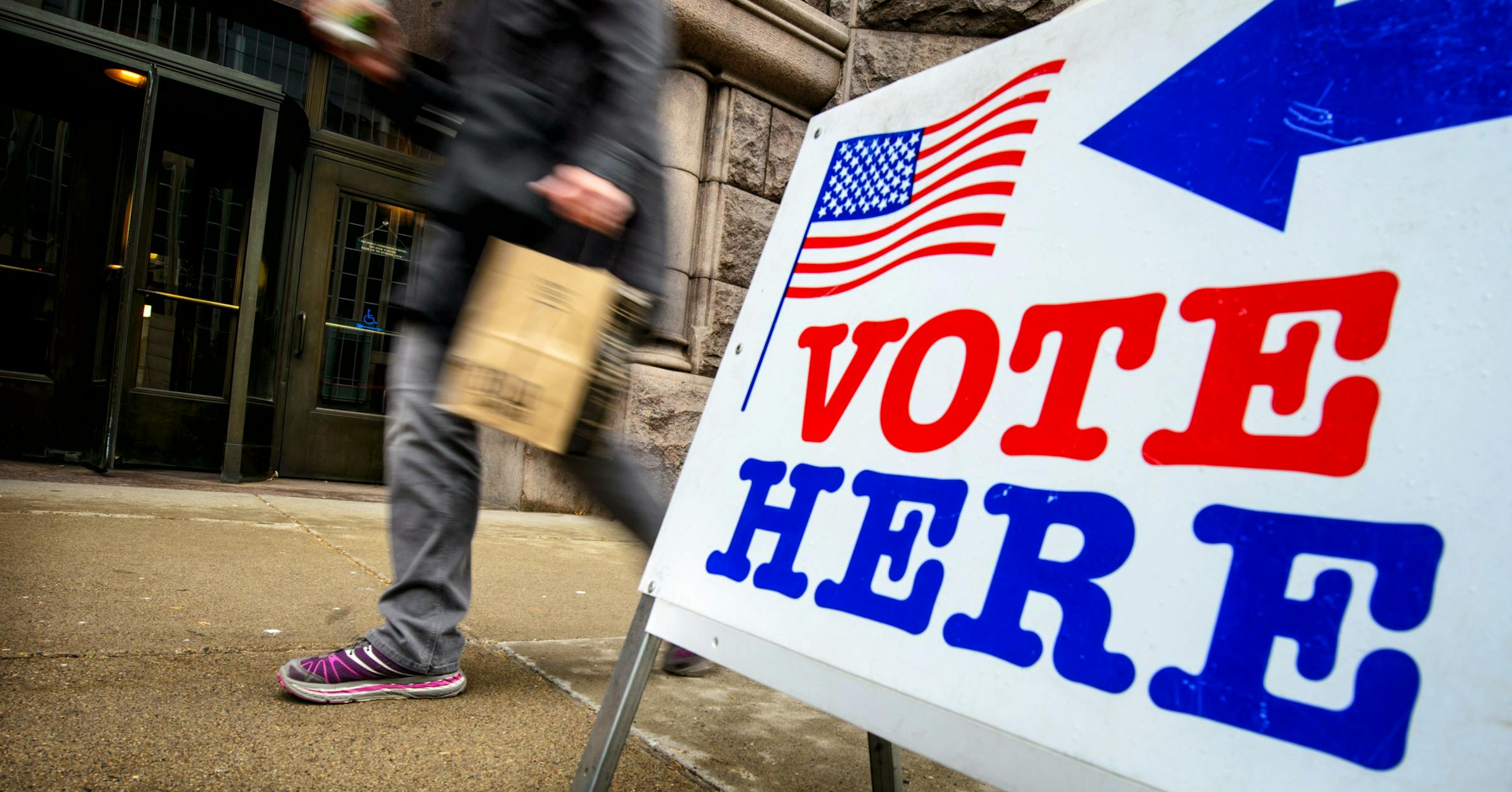Copyright Reading Eagle

Democrats have held a majority on Pennsylvania’s Supreme Court for 10 years, and this year’s uniquely politicized and costly retention election gives voters the chance to keep that majority intact or potentially flip the court within a couple years. Democratic Justices Christine Donohue, Kevin Dougherty and David Wecht face “yes” or “no” votes on their retention for another 10-year term. While there are no term limits for the court, there is an age limit, and Justice Donohue must retire in 2027 when she reaches the age of 75. Only one justice has been tossed from the bench in more than 50 years. But this year’s contest has seen millions of dollars pour in from state and national conservative and progressive groups, with legal experts telling the Post-Gazette that state courts are increasingly enmeshed in high-profile political battles over contentious issues such as election law and abortion. The nonpartisan Pennsylvania Bar Association praised all three Democratic justices and recommended them for retention. The state Republican Party and conservative groups have blasted the justices as leftist extremists, though the justices have not always sided with the majority or each other. Progressives pushing for retention argue the court is the last line of defense for abortion and voting rights, though the issue of mail voting regulations remains contentious. Justice Dougherty has deep ties to Philadelphia, while Justices Donohue and Wecht have ties to Allegheny County. Here’s a breakdown of some of the court’s pivotal rulings in recent years, ranging from abortion to election law and pandemic measures. Pandemic lockdown In 2020, the court upheld then-Gov. Tom Wolf’s initial emergency order shutting down all “non-life-sustaining” businesses — one of multiple pandemic-related rulings that conservative groups have targeted in their advertising. The shutdown had been challenged by a handful of businesses, which argued the move violated the state’s emergency management services code and constitution. After Mr. Wolf renewed and extended the order that June, state lawmakers adopted a resolution attempting to force the governor to end the disaster emergency. In a majority opinion written by Justice Wecht, the court said it expressed “no opinion as to whether the governor’s response to the COVID-19 pandemic constitutes wise or sound policy.” Nor was the court opining on whether the General Assembly had a “superior approach” to Pennsylvanians’ welfare. Rather, the majority said the state’s emergency management code simply did not permit state lawmakers to terminate a governor’s emergency proclamation through a resolution without presenting it to the governor for approval or veto. Justice Donohue joined the majority. Justice Dougherty issued a concurring and dissenting opinion — agreeing with the majority’s core argument, but going further in saying the emergency services management code “reflects the legislature’s intent to avoid the constitutional requirement” to present a resolution to the governor to sign or to veto. The court didn’t always agree to let pandemic measures stand. In December 2021, Justice Wecht also wrote the majority opinion in a ruling that upheld a lower court decision that the then-acting secretary of health, Alison Beam, exceeded her authority by requiring individuals to wear masks inside Pennsylvania schools. Justices Donohue and Dougherty concurred. Abortion access The overturning of Roe v. Wade by the U.S. Supreme Court in 2022 “kicked the court races into high gear,” Douglas Keith, deputy director of the Judiciary Program at the Brennan Center for Justice, recently told the Post-Gazette. At a time when advocates and Democratic leaders hope to prevent Pennsylvania from joining the 19 states that have restricted access since Roe was overturned, the high court ruled last year in Allegheny Reproductive Health Center v. Pennsylvania Department of Human Services that a ban on Medicaid coverage for abortions was “presumptively unconstitutional.” In a 219-page majority opinion by Justice Donohue, the majority overturned previous precedent and ruled the state’s Equal Rights Amendment protected abortion rights, because the ban on public funding amounted to discrimination based on sex. Justice Wecht joined the majority and wrote a separate concurring opinion. Justice Dougherty concurred in part and dissented in part — making the case that the court did not need to address whether there is a fundamental abortion protection in the state’s constitution. Republican-aligned groups have generally not mentioned abortion in their mailers and advertising accusing the justices of being activists. But some conservative groups have said a “no” vote to block retention would help protect women and families — citing the court’s upholding of the overturning of Bill Cosby’s conviction. Cosby had served time after being convicted of sexually assaulting dozens of women, but the conviction was thrown out on procedural grounds. The conservative-majority U.S. Supreme Court declined to hear prosecutors’ appeal of the state court’s final ruling. Some Republicans have downplayed abortion’s importance to the retention elections, noting the state legislature is divided and the governor is currently a pro-choice Democrat who would veto any abortion ban. But there have still been proposals by Republican state lawmakers in recent years to curtail abortion rights, and there is no constitutional provision directly legalizing or outlawing abortion. Similar to limits set in Roe, abortion is legal in Pennsylvania up to 24 weeks of pregnancy, and longer when a mother’s life is at risk. Republican state Treasurer Stacy Garrity, who applauded the overturning of Roe, has said she would not support a statewide ban. But she has accused the justices of “judicial activism” on other issues, and urged voters to reject their retention. Mr. Shapiro has pushed voters to give them another term, citing reproductive rights as a key factor. Election law The three justices have weighed in on election law several times in recent years, with Pennsylvania one of several battleground states where pandemic measures to make mail voting easier and related issues continue to take center stage. Multiple cases have come as President Donald Trump and allies made false claims of widespread election fraud impacting the 2020 election, with mail voting frequently coming under fire. The court upheld Act 77, which allowed no-excuse mail voting, in 2022, rejecting Republicans’ push to invalidate it. In the majority ruling, Justices Wecht and Dougherty concurred with Justice Donohue’s opinion that the General Assembly had the authority to pass the law. In the run up to the 2024 election, the Republican Party urged voters to take advantage of mail voting to better compete with Democrats who had embraced it in far greater numbers in 2020. But court battles over ballots, signatures, dating and more have persisted for years. In 2020 during the pandemic — after Democrats sued the state seeking to allow the use of ballot drop boxes, requiring counties to notify voters who’d made errors, extending the deadline for returning mail ballots and more — the high court’s majority ruled state Election Code allowed voters to use drop boxes. The court also pushed the deadline for receiving mail ballots to Friday after an election. Other measures sought by Democrats were not approved by the majority, such as the county notifications on errors — though some counties have since chosen to warn voters when their ballot could be disqualified due to signature or date mistakes. Justices Wecht and Dougherty joined the majority, while Justice Donohue concurred in part and dissented on extending the deadline. The justices have also been divided on whether voters should be able to fix ballots with errors after being notified by counties. Justices Donohue and Dougherty said such voters have a right to cast provisional ballots; Justice Wecht dissented along with the two Republicans. State and federal courts also continue to fight over whether voters must write a date on their ballot return envelopes. Justice Donohue sided with the majority in a case in November 2020 in which the court upheld a lower court ruling that ballots could be valid even without a date on the envelope. Justice Dougherty dissented, agreeing with two Republican justices. Justice Wecht also said the law required dates — though he concurred with the majority that when no fraud or irregularities are alleged, ballots should not be invalidated if voters do not include their name and address on the outer signed envelope. The court was deadlocked on the issue when it arose again in 2022. Justice Dougherty again sided with Republicans who said ballots without a date on the envelope should not be counted and should be set aside from other ballots. Justices Donohue and Wecht said rejecting such ballots would violate federal voting laws. In August, a federal appeals court in Philadelphia ruled such ballots cannot be discarded. The Republican National Committee and state GOP said in a joint statement at the time that the law is clear: you must sign and date your return envelope. They noted they’d continue to fight the issue. The court has also delved into cases after state lawmakers and the governor were divided over redistricting. In 2017, the nonpartisan League of Women Voters of Pennsylvania, along with voters from every congressional district, argued in a lawsuit that gerrymandered maps violated the state constitution’s guarantee of free and fair elections. The state Supreme Court ruled in favor of the claim, effectively killing a congressional map that favored Republicans. Conservative groups in recent months have accused the court of essentially gerrymandering districts. Progressives and groups like the League of Women Voters disagree, noting the court appointed an independent expert to draw districts. The Democratic-led court, including Justices Donohue, Wecht and Dougherty, later selected one of several potential new congressional maps drawn up by outside experts in 2022. The Republicans and one Democrat, Justice Debra Todd, dissented. Justice Todd and the majority similarly wrote that no plan was perfect, but she argued that another map, proposed by mathematicians and scientists including University of Pennsylvania professor Philip Greesman, better met “neutral constitutional criteria.” © 2025 the Pittsburgh Post-Gazette. Visit www.post-gazette.com. Distributed by Tribune Content Agency, LLC.



